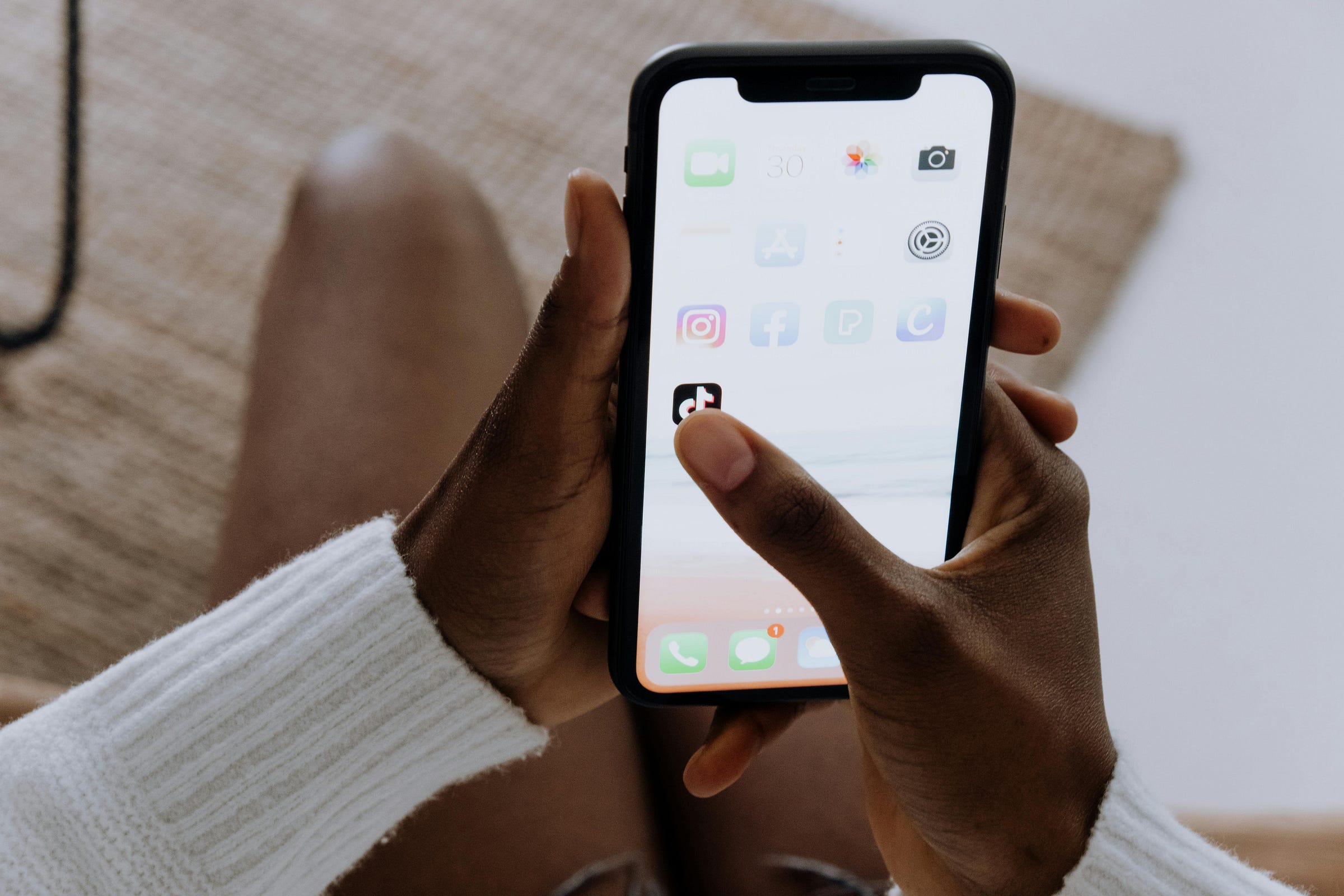Why TikTok is just the start for lawmakers
While the controversial divest-or-ban bill is dominating the headlines, Congress has its sights set on reigning in Big Tech companies at home too.
The ink is finally dry on the bill the Senate passed and President Joe Biden signed into law this week that unlocked $95 billion in emergency national security funding to deliver assistance to Ukraine, Israel and Taiwan—plus humanitarian aid to Gaza, Haiti and Sudan.
As you’re probably aware, the bill also included a controversial measure to remove TikTok from US app stores if ByteDance, the Chinese internet technology company that owns the app, refused to divest it within nine months. (The president could extend the deadline by three months if he chooses.)
170 million Americans—nearly half of the US population—use TikTok, with a class of creators relying on the app to earn a living. So it’s no wonder the possibility that it could soon be inaccessible in the country has sparked an online backlash. But a closer look at a series of recent developments indicates members of Congress have their sights set on reigning in Big Tech companies at home, too, after years of failure to meet the moment as social apps transformed every facet of American life with little federal oversight and at enormous profit.
“These issues are very crucial because we have more and more of people’s data being gathered that shouldn’t be, against their will and against their knowledge,” Rep. Frank Pallone (D-N.J.), ranking member of the House Energy & Commerce Committee, told Once Upon a Hill earlier this month. “So we need to protect privacy and minimize the data that’s being collected by social media companies and others in a way that’s more protective.”
A House Energy & Commerce subcommittee held a hearing on 10 bills that would establish federal comprehensive data privacy standards before this past week’s recess.
One of those measures, introduced by Rep. Yvette Clarke (D-N.Y.), would regulate using artificial intelligence to make critical decisions like housing, employment and education.
“It is critical and I’m happy to hear that my Algorithmic Accountability Act is being involved because that is just a significant platform on which to build all of what we are doing in terms of data privacy,” she told OUAH in an interview. “If we can make sure that civil rights violations are not baked into everything that we’re doing in this space, then we’ve done a long way.”
Rep. Lori Trahan (D-Mass.), who introduced two of the bills discussed during the hearing, acknowledged that the US has some catching up on the issue.
“The reality is we are so behind what the [European Union] has done and parents know it,” she told OUAH in an interview. “We cannot keep relying on whistleblowers to keep sounding the alarm on protecting our children, making sure that our data and our privacy is secure.”
Trahan thinks her DELETE Act, which would establish a centralized system to allow you to request the simultaneous deletion of your personal information across data brokers, is a step in the right direction.
“I want there to be a look-back—it’s not just data moving forward,” she said. “It’s all the data that’s been collected thus far. People should be able to opt out of data being collected and stored.”
The three-congresswoman also has a bill—the TLDR Act—to provide an alternative for those CVS-receipt-length terms of service that pop up every time we sign up for a new app or service.
“There are things we can do to make it more consumable for people to understand what they’re signing up for,” she said. “We read those terms of service, we all check it, but we don’t actually have a clear understanding of what we’re agreeing to.”
Her passion for the issue comes partly from her role as the mom to two girls, 10 and 14 years old.
“I understand the addictive qualities of these apps, the harms that are being afflicted upon our children and the fact that [Big Tech companies] keep walking away,” Trahan said. “So, Congress needs to act and we’re going to act.”
The E&C subcommittee hearing followed the unveiling of a landmark bill from committee Chair Cathy McMorris Rodgers (R-Wash.) and Sen. Maria Cantwell (D-Wash.), who leads the Senate Commerce Committee that would formalize data privacy as a human right.
Specifically, it would allow you to opt out of targeted ads on social apps, sue bad actors who violate your privacy rights and stop companies from using your personal information to discriminate against you.
Additionally, companies would be required to disclose when your data has been transferred to foreign adversaries and only collect data needed to provide products and services. The bill would empower you to prevent the transfer or selling of your data and opt out of data processing when a company changes its privacy policy. Affirmatively expressed consent would be required before sensitive data could be transferred to a third party.
Most importantly, it would preempt the existing patchwork of state comprehensive data privacy laws, ensuring a level playing field for all digital consumers.
In February, the Kids Online Safety Act surpassed 60 cosponsors, a milestone that suggests enough support to break the filibuster.
KOSA would require social media companies to design their products with the safety of kids and teens in mind. It would also provide parents with tools to protect their kids and give families more options for managing and disconnecting from these platforms.
In a letter to senators earlier this month outlining the upcoming legislative agenda, Senate Majority Leader Chuck Schumer (D-N.Y.) listed “[advancing] online safety] among the bipartisan bills he’d like to move in the weeks and months ahead. He has also indicated a desire to find a path forward on the Cantwell-McMorris Rodgers bill.
The challenge in both chambers is two-fold: There are few vehicles for these measures to ride alongside and legislative days are scarce as campaign season consumes the congressional calendar.
But Schumer’s tenure as the top Democrat has been defined by his ambition and persistence to get shit done against strong headwinds.
In the meantime, members and Biden administration officials must work to persuade skeptics that a forced sale of TikTok is in their best interest.
The House passed a similar version of the final bill in the national security package eight days after it was introduced and days before a unanimous E&C Committee vote to advance it to the floor.
Supporters of the bill—which was considered under a fast-track procedure that limits floor debate, prohibits amendments and requires a two-thirds majority vote for passage—reiterated at every turn that it isn’t an outright ban but a demand for complete divestiture, a distinction I wrote then that most laypeople would misunderstand or ignore and has since been proven true.
Speaker Mike Johnson (R-La.) tucked the bill into a “sidecar” measure filled with several Republican and bipartisan bills related to Russia, China and Iran, including two that would empower the president to seize Russian assets and transfer them to Ukraine and crack down on fentanyl traffickers. It passed in a 360–58 vote.
Two members of House Democratic leadership and eight committee ranking members opposed the stand-alone bill. Seven untimely flipped voted for the sidecar, with three members opposing.
Democratic members who opposed it expressed concerns to OUAH that a ban could discourage voters from backing President Biden for a second term. It’s worth noting that the original bill would have forced a divestiture or sale before the election. Now, it’s likely the issue won’t be resolved until after.
And while much of the focus has been on the creators who could suffer economically without TikTok, Sen. Laphonza Butler (D-Calif.) sent President Biden a letter this week urging the administration to consider the consequences to the 8,000 American TikTok workers of a potential sale or divestiture.
“I commend you for committing to be the most pro-labor president in American history,” Butler, who voted for the bill that included the TikTok legislation. “As your administration considers a qualified divestiture of TikTok, I urge you to keep in mind the unintended, yet very real and life-changing, consequences on thousands of Americans and their families.”
Unsurprisingly, TikTok has called the bill unconstitutional, a matter the court will likely decide. In a defiant statement, it claimed that the facts and law are on its side. (Perhaps as important, so are the American people, it seems.) And it pointed to the billions of dollars it invested to keep US data safe and our platform free from outside influence and manipulation.
“This ban would devastate seven million businesses and silence 170 million Americans,” the company said. “We will continue investing and innovating to ensure TikTok remains a space where Americans of all walks of life can safely come to share their experiences, find joy, and be inspired.”
TikTok CEO Shou Chew positioned himself as a happy warrior fighting Big Brother on behalf of American TikTok users.
“TikTok gives everyday Americans a powerful way to be seen and heard. And that’s why so many people have made TikTok part of their daily lives,” Chew said in a two-minute video statement. “Rest assured, we aren’t going anywhere.”
Chew spent the days before the House passed the stand-alone TikTok bill last month lobbying senators to oppose it. On the morning of the vote, a group of protesters demonstrated against it outside the Capitol. The company also drew the ire of lawmakers with aggressive pop-up calls to action urging users to call both House E&C members and their representatives and encourage them to vote against the bill.
In recent years, previous efforts to regulate tech giants like Meta, Amazon and Google parent company Alphabet have been confronted with fierce resistance from lobbyists representing the companies.
Trahan expects similar pushback from them as Congress attempts to advance the privacy and kids safety bills.
“I meet with tech companies regularly. I listen to their concerns. I push them on making what’s available and what they’re complying with the [General Data Protection Regulation] in the EU to protect our own youth,” she said. “These are things that are long overdue, so I don’t think we’re doing to be deterred by the lobby.”
Time will soon tell if she’s right.



